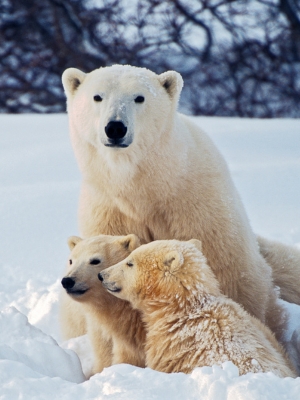For the first time since 1994, Georgia has expanded restrictions on owning, selling, and breeding wild animals as pets. While measures to limit the trade in and exploitation of wild animals are welcome, the new rules fall short of meaningful change.
Beginning on December 4, 2022, these new restrictions will require owners of newly restricted species to register and tag their animals with the Georgia Department of Natural Resources Law Enforcement Division within one year. Those who own species of non-domestic cats will have to obtain liability insurance. In addition, people not eligible for a permit must relocate their animals.
Georgia Adds New Species to Its Prohibited Species List
Animals recently added to Georgia’s prohibited species list include all mongooses, certain bird species including monk and Quaker parakeets, and select species of fish including snakeheads, African tigerfish, bighead and silver carp, black carp, lates perches, sheatfishes, and wels catfish. Newly prohibited invertebrates include dreissenid mussels, giant African land snails, and marbled crayfish.
Owners of Indian rock pythons, Burmese pythons, Argentine black-and-white tegus, Nile monitors, African helmeted turtles, and softshell turtles may continue to keep these animals as pets without a license if they tag and register them with the Georgia DNR.
The New Restrictions Do Not Go Far Enough to Protect Animals and Public Health and Safety
While expanding the list of prohibited species not eligible for private ownership and requiring registration of all animals with the state marginally benefits public health and safety measures, it by no means guarantees it. Steps to curb the trade in wild animals are generally positive but only complete prohibition will protect animals and humans from harm. By allowing the private ownership of any wild animal species, Georgia is allowing instances of dangerous wild animal escapes or attacks, zoonotic disease transmission, invasive species outbreaks, and local ecosystem harm.
These new half-measures also help propagate the cruel exotic animal trade, which causes the death and worldwide suffering of countless animals every year. All species involved in the pet trade suffer greatly, but reptiles are a particularly poignant example. Reptiles are among the most inhumanely treated animals in the pet trade, as they are cheap, easily replaceable, and not well understood from a behavioral or welfare perspective. Estimates suggest that up to 70% of all reptiles in the pet trade die before reaching their final destination, while approximately 90% of wild-caught reptiles die within their first year of captivity due to physical trauma prior to purchase or the inability of owners to meet their complex species-specific needs.
U.S. Legislation Fails to Protect Animals in the Pet Trade
Most of the United States legislation, including that of Georgia (even after the recent changes), fails to protect wild animals or the people that own them. Currently, the legislation pertaining to private wild animal ownership throughout the country differs widely between each state and remains negligent of public health and safety, animal welfare, wildlife conservation concerns, and ethical issues.
Like Georgia, 66% of the country (33 states) allows ownership of most dangerous wild animal species with the acquisition of a permit or license (but little to no husbandry experience or knowledge of the animals’ needs or history required). Twenty four percent of the country (12 states) has a partial ban on some animal species and only 10% of the country (five states) has a full ban on all wild animals.
A Compete Legal Overhaul Is Needed to End the Exotic Pet Trade
The United States must acknowledge that privately owning wild animals is an animal welfare nightmare and a human public health and safety risk. Rather than minute alterations of state laws, a complete overhaul of federal legislation is needed to meaningfully resolve this problem. It is time for a larger and more impactful change that prioritizes the welfare and safety of both humans and animals alike.
Keep Wildlife in the Wild,
Devan

 Dear Reader,
Dear Reader,